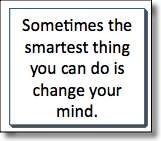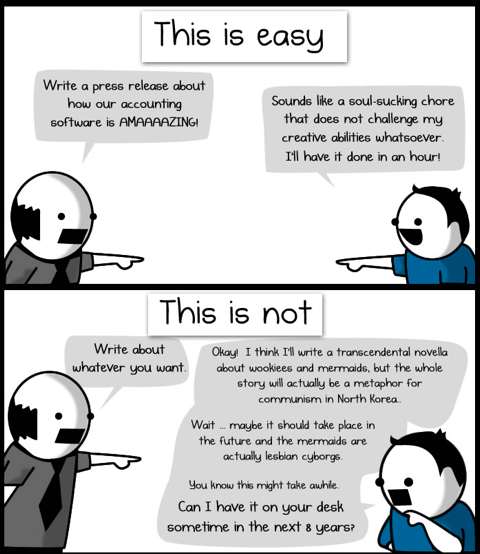(Note: I’m posting here my latest column for the Eugene Register Guard Blue Chip monthly magazine. These are not new themes for this blog, but I like what I say here. This is reposted here with permission.)
Let’s put startups, entrepreneurship and life in proportion.
A webinar participant asked me last week about what I think are the biggest mistakes I see in startups. That made me think, and here’s what I came up with. And common mistakes that you and I should avoid. So here’s a list. But first, three stories:
- My friend Larry found the
 job of his dreams and moved from the Silicon Valley, which he loved, to Atlanta for the new job. Six months later he was back. When I asked him what happened, he said: “Tim, it’s easier to find a new job than a new wife.” That was 20 years ago. He and his wife are still married. And Larry doesn’t regret his decision.
job of his dreams and moved from the Silicon Valley, which he loved, to Atlanta for the new job. Six months later he was back. When I asked him what happened, he said: “Tim, it’s easier to find a new job than a new wife.” That was 20 years ago. He and his wife are still married. And Larry doesn’t regret his decision. - A former student asked me, three years after he graduated, what to do about his wife not wanting him to start a new company. He said he had done the business plan and was sure it would work, but his wife was against it. I told him to get a clue. If he couldn’t convince his wife, a) maybe it wasn’t such a great idea; and b) that adds huge personal risk on top of the business risk.
- Years ago I was stuck over whether to leave a good job to start my own business. My wife and I had heavy student debt, four kids and a mortgage. She said: “Do it. Let’s take the risk. If it doesn’t work, we’ll figure it out. You won’t fail alone; we’ll fail together.” So I did it. And it worked.
- Don’t sacrifice your life for your business. If you can, make your business enhance your life. And avoid the mistake of confusing business with life.
- If business threatens good, important relationships, then dump the business. (The corollary to that one — in honor of my four daughters, who know this — is that if a bad relationship holds you back for no good reason, dump him, not the business).
- Don’t use business as an excuse for selfishness and obsession. I’ve lived through this. There is an overpowering temptation to push everything else aside and dive into the business. Everybody who wants you to do anything else is annoying, and “Don’t they realize you’re building a business?” You miss dinner, the kids’ games and teachers’ conferences, everything that matters to anybody else in your life.
- If you make it, don’t pretend you did it alone. In my case, for example, I get introduced as chairman and founder of a successful software company, as if I’d done that alone. My ego likes that. But from the very start my wife was there with the risk, the thinking, the key decisions, the strategy, who and what to prioritize, and (repeating on purpose) especially the risk. We both had to sign the papers for the credit line at the bank. We both put our house and everything we owned into play. Perhaps even more importantly, my wife made sure I didn’t fall into that obsession trap. She insisted I stop working for family dinner, every night, even if I had to continue working into the evening. She scheduled vacations in advance, and prepaid them, so I wouldn’t just cancel. She didn’t let me dive into the business and never come out. She maintained that sense of proportion and I’m grateful to her for that.
Final thought: People who start businesses, run businesses and grow businesses have to be able to live with mistakes. You can’t do it without making lots of mistakes. Be able to deal with that. But keep the mistakes inside the business, not in the rest of your life.
(Image: shutterstock.com)
{ 0 comments }























